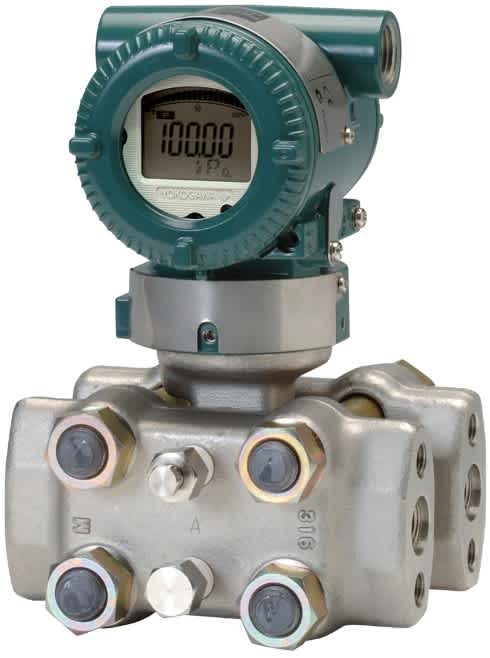Plants run better with Yokogawa’s high-static differential pressure transmitter and the DPharp sensor that offers the performance and device intelligence needed to get greater insight into your process to improve boiler efficiency, reliability, and safety.
Application
The primary function of a boiler is to convert water to steam. The steam provides process heat or produces electricity. An objective for safe and efficient boiler operation is to maintain a constant steam and water interface level in the boiler drum. This can be accomplished by maintaining a balance between the amounts of steam leaving and water entering the boiler drum. Unfortunately, boiler drum level control is complicated by changes in heat, changes to electrical load requirements, and variations in the fuel and air supply.
Challenges
Boiler drum level is a critical measurement necessary to maintain efficient, reliable, and safe operations. If the boiler steam/water interface level is too low, it can lead to boiler tube damage due to overheating. This would mean significant cost and downtime in order to make the necessary repairs as well as possible safety risks. If the boiler level is too high, excess moisture in the steam can cause issues downstream such as reduced heat exchanger efficiency, steam trap wear, and erosion.
One North American chemical manufacturer was experiencing issues with their boiler level measurement due to changes in their heat/electrical demand. Typical static pressures in the boiler would run around 2800 psig. Significant static pressure changes during startup and shutdown would seriously affect the level reading. Additionally, pressure spikes would cause shifts in the zero reading. That required maintenance personnel to constantly check the calibration.
Solution
To address these issues, the customer replaced the differential pressure transmitters on the boilers with Yokogawa’s EJX130A with DPharp technology. DPharp's resonant silicon sensor incorporates dual resonators, which are self-compensating for changes in static pressure. The differential frequency between the resonators is used for the measurement of differential pressure or water level in the boiler drum. Static pressures applied to the dual resonator sensor within DPharp do not lead to a differential frequency change as both resonators are affected equally. Upon startup, minimal output shifts were seen due to changes in static pressure leading to superior performance in the boiler drum level measurements.
 Key Advantages
Key Advantages
-
Superior accuracy and stability enable efficient operation with no downtime.
-
Reduced static pressure effect reduces OPEX by eliminating constant maintenance attention.
-
Improved overpressure protection increases efficiency and safety.
Related Industries
-
Power
In the mid 1970s, Yokogawa entered the power business with the release of the EBS Electric Control System. Since then, Yokogawa has steadfastly continued with the development of our technologies and capabilities for providing the best services and solutions to our customers worldwide.
Yokogawa has operated the global power solutions network to play a more active role in the dynamic global power market. This has allowed closer teamwork within Yokogawa, bringing together our global resources and industry know-how. Yokogawa's power industry experts work together to bring each customer the solution that best suits their sophisticated requirements.
-
Chemical
Chemical plants rely on continuous and batch production processes, each posing different requirements for a control system. A continuous process calls for a robust and stable control system that will not fail and cause the shutdown of a production line, whereas the emphasis with a batch process is on having a control system that allows great flexibility in making adjustments to formulas, procedures, and the like. Both kinds of systems need to be managed in available quality history of product, and to be able to execute non-routine operations. With its extensive product portfolio, experienced systems engineers, and global sales and service network, Yokogawa has a solution for every plant process.
Related Products & Solutions
-
EJX130A
High Static Differential Pressure Transmitter
-
Pressure Transmitters
Deliver high reliability across a range of process conditions
Have Questions?
Contact a Yokogawa Expert to learn how we can help you solve your challenges.